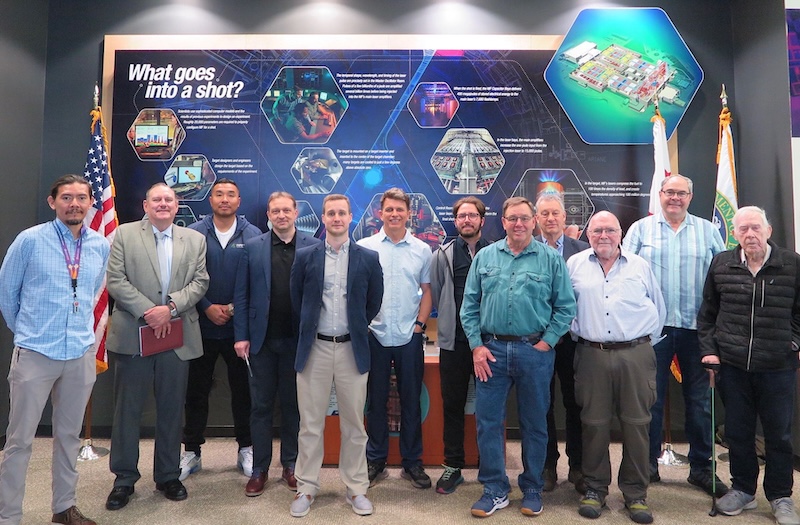Branded Content by Cosmic Press
Sustainability has become a hotly debated topic in the corporate world. The growing public interest in environmental and social responsibility has led many companies to invest in such initiatives. Furthermore, there is a general consensus that environmental impacts can affect access to essential resources for many businesses.
Let’s find out what the main careers are for those who want to work in environmental care.
1. Environmental engineer
Environmental engineers apply engineering principles to develop sustainable solutions to environmental issues. They work on the design, implementation, and management of projects that aim to protect and preserve the environment.
What does it do?
The environmental engineer is involved in projects involving water treatment, waste management, air pollution control, recycling and sustainable infrastructure development.
How to become a professional in the field?
It is necessary to complete a degree in Environmental Engineering or related fields. After graduation, it is possible to seek specific certifications to improve skills.
What are the possibilities for action?
Environmental engineers can work in private companies, government agencies, environmental consultancies or NGOs, as well as start their own business.
What is the current market like?
The market for environmental engineers is growing, driven by growing concerns about environmental issues and stricter regulations.
- Biologist
Biologists study living organisms and their environments. They analyze the origin, evolution, characteristics, and behavior of living things, as well as the interactions between different species and their environment.
What does it do?
Biologists can work in research, biodiversity conservation, environmental education, management of protected natural areas, genetics, among other areas.
How to become a professional in the field?
It is necessary to have a degree in Biological Sciences. Master’s and doctorate degrees are common for those who wish to pursue an academic or research career.
What are the possibilities for action?
They can work in research institutions, universities, government agencies, NGOs, pharmaceutical industries, biotechnology companies, among others.
What is the current market like?
The market for biologists is broad and varied, with opportunities in many areas, from research to conservation and education.
- Agronomist
Agronomists are professionals who study and develop techniques to improve agricultural production and the sustainability of agricultural systems.
What does it do?
Agronomists are involved in activities such as farm planning and management, development of new agricultural techniques, management of natural resources, pest and disease control, among others.
How to become a professional in the field?
It is necessary to have a degree in Agronomy. Postgraduate and specialization courses can be advantageous to improve knowledge in specific areas, especially to stay up to date with innovations.
What are the possibilities for action?
They can work on farms, agricultural companies, food industries, consulting firms, research institutions, government agencies, among others.
What is the current market like?
With the growing demand for food and the need for sustainable agricultural practices, the market for agronomists remains strong.
4.Sustainability Reporting Specialist
The introduction of the European legislation CSRD has fundamentally changed this job. While previously sustainability reports were often seen as a “nice-to-have”, they are now an integral part of corporate governance. Numerous companies are no longer only required to report on their sustainable practices voluntarily. They are now legally obliged to provide detailed and transparent information on their environmental, social and governance (ESG) performance.
What does it do?
A Sustainability Reporting Specialist is responsible for collecting, analyzing and preparing a company’s sustainability data in report form. He works closely with various departments to ensure that all relevant information is included in the reports. The ability to deal with various reporting standards such as the ESRS is crucial. A deep understanding of data analysis and visualization is becoming increasingly important here.
How to become a professional in the field?
There are numerous CSRD training and further education courses to meet these new requirements.
What are the possibilities for action?
Industries such as energy, transport, agriculture and manufacturing are particularly required to adapt their sustainability reports to the new requirements.
What is the current market like?
These jobs include a variety of positions that deal with compliance with and implementation of the sustainability requirements of the European Sustainability Reporting Standards (ESRS). Companies need professionals who are not only able to collect and analyze sustainability data, but also meet legal and regulatory requirements.
- Ecologist
Ecologists study the interactions between living organisms and their environment. They analyze ecosystems, patterns of species distribution, and flows of energy and matter in ecosystems.
What does it do?
Ecologists are involved in research, conservation, environmental monitoring, and education. They may work in terrestrial, aquatic, or marine ecosystems.
How to become a professional in the field?
An undergraduate degree in ecology or a related field, such as biological sciences, is required. Master’s and doctoral degrees are common for ecologists who wish to engage in advanced research.
What are the possibilities for action?
They can work in research institutions, NGOs, government agencies, environmental consulting firms, conservation organizations, among others.
What is the current market like?
The demand for ecologists is growing, especially with increasing concerns about climate change, biodiversity conservation and a need for a better future.
- Oceanographer
Oceanographers study the oceans and their components, including marine organisms, ocean currents, marine ecosystems, marine pollution, and ocean climate change.
What does it do?
Oceanographers can specialize in a variety of areas, including biological, physical, chemical, or geological oceanography. They conduct research, collect data, model, and develop marine conservation strategies.
How to become a professional in the field?
It is necessary to have a degree in Oceanography or related areas, such as Aquaculture. Master’s and doctorate degrees are common for specializations in specific areas of oceanography.
What are the possibilities for action?
They can work in research institutions, oceanographic laboratories, marine conservation organizations, fishing industries, oil and gas exploration companies, among others.
What is the current market like?
The demand for oceanographers is growing due to the increasing importance of understanding and conserving marine ecosystems.
- Geologist
Geologists study the Earth, including its composition, structure, geological processes, and history. They investigate the formation of natural resources, such as minerals, petroleum, and groundwater, as well as the dynamics of the Earth’s crust.
What does it do?
Geologists are involved in field research, laboratory analysis, environmental impact studies, exploration of natural resources, and assessment of geological hazards such as earthquakes and landslides.
How to become a professional in the field?
It is necessary to have a degree in Geology. Again, other stages of academic education are common for those who wish to specialize in the segment.
What are the possibilities for action?
They can work in mining companies, oil and gas industries, government agencies, environmental consulting firms, research institutions, among others.
What is the current market like?
The market for geologists is varied, with opportunities in many industries, especially those related to the exploration (especially sustainable) of natural resources.
Branded content furnished by our promotional partners. The Daily Sundial editorial staff is not involved in its production. Content does not reflect the views or opinions of the editorial staff.








